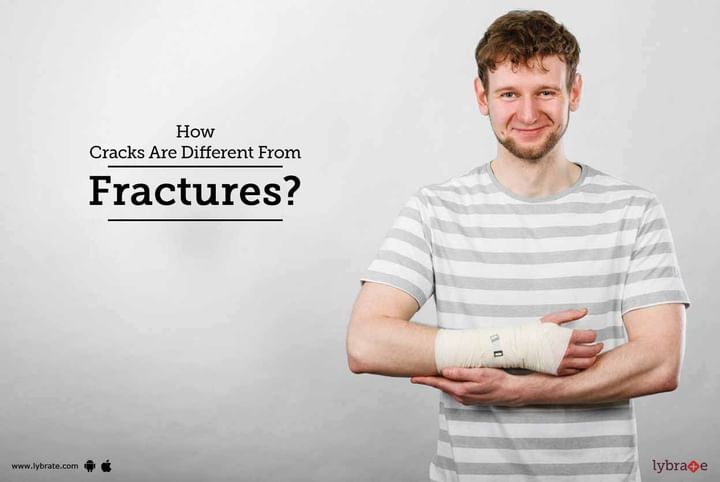Get the App
For Doctors
Login/Sign-up
Last Updated: Oct 23, 2020
BookMark
Report
How Cracks Are Different From Fractures?
Dr. Krishna Kumar M SOrthopedic Doctor • 18 Years Exp.MBBS, MS - Orthopaedics, Fellowship In Arthroscopy & Sports Injury, Fellowship Joint Replacement, Fellowship in Shoulder and Elbow, Fellowship in Shoulder and Elbow Surgery
A fracture separates a single solid object into two or more pieces due to pressure. In medical terms, a fracture refers to a broken bone due to some kind of external trauma. A crack in the bone, on the other hand, it does not cause a clean break in the bone, there is only a separation or discontinuity in the bone material.
A crack in the bone caused due to repeated stress is often called as 'hairline fracture'. Here are the basic differences between a crack and a fracture in the bone and how to treat them:
- A crack or hairline fracture is rarely caused by a single injury. It is usually the result of bone fatigue, which may be caused due to repeated, concentrated stress over a long period of time and thus, it is also called as 'stress fracture'. Other bone fractures are almost always the result of sudden and severe force on the bones.
- The skeletal system constantly remodels itself. The cells, known as 'osteoblasts' absorb calcium and secrete bone connective tissue. If a particular site is exposed to recurrent bouts of force (which are individually not impactful enough to cause a crack), over time the osteoblasts in that region malfunction and the crack appears. Muscular exhaustion can also cause cracks in the bone. Fractures are caused due to sudden external single force trauma to the bone. Nutritional problems like deficiencies of Calcium, Phosphorus, vitamin D and excessive smoking decrease the bone mineral density and increase the chance of both cracks and fractures.
- Symptoms of a crack are swelling, tenderness and sharp pain in the injured region and the symptoms worsen over time. A fracture has similar symptoms and might also exhibit an external physical distortion and makes it impossible to move that part of the body that where the bone is broken.
- An MRI is often suggested for detecting the crack or crack-prone areas because an X-ray can only detect the crack after it widens somewhat or the bone starts paining because the rays cannot pass through the tiny gap in bone material. A fracture is easily detectable by an X-ray because the rays pass right through the break.
- Complete rest for six to eight weeks is the most effective way of healing a crack. Using a walking boot in case of cracks in the leg bones in also helpful. Healing fractures require extensive medical intervention. Surgical techniques like bone grafting and the insertion of metal plates are used to reposition the broken bone.



+1.svg)
